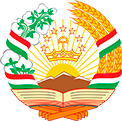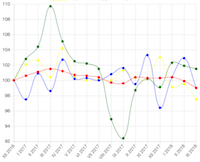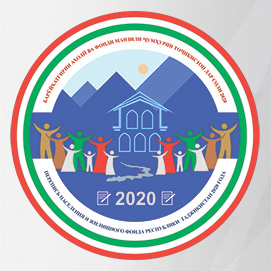From February 14 to 25, 2022, the Agency on Statistics under the President of the Republic of Tajikistan held seminars on the timely implementation of the Food and Agriculture Organization of the United Nations (FAO) project “Assessment of the impact of COVID-19 on food and food security in the Republic of Tajikistan”, using the “Perception Scale food insecurity”, indicators 2.1.2. Sustainable Development Goals” and including it in the Household Budget Survey for Economists of the Household Budget Survey of the Agency on Statistics by regions, GBAO, Dushanbe and cities and districts of republican subordination.
The seminar was organized by experts from the Food and Agriculture Organization of the United Nations (FAO) and national experts of the Agency on Statistics under the President of the Republic of Tajikistan on February 14-15, 2022 at the Main Directorate of the Agency on Statistics for the Sughd region for 25 employees of household budget surveys of cities and districts of the Sughd region, February 18-19, 2022 at the Main Department of the Agency on Statistics of Khatlon region in Bokhtar, for 25 employees of household budget surveys of cities and districts of Khatlon region and February 24-25, 2022 in Dushanbe, for employees of household budget survey of GBAO -7 pers., sh. Dushanbe - 6 people and RRS - 11 people.
The main objective of the workshop was to improve the ability of household budget survey staff to properly conduct household surveys on household food insecurity caused by lack of money and insufficient food supplies leading to household insecurity.
It was especially noted that this module was studied for the first time in Tajikistan among the CIS countries and included in the household budget survey.
The use of this module within the framework of the Household Budget Survey allows the determination of indicator 2.1.2. Provide an indicator of sustainable development goals, as well as assess food insecurity at the household level, where various factors affect the purchasing power of food, loss of employment or loss of other sources of income, other factors of lack of money such as lack of food, insufficient production for own consumption, the impossibility of self-sufficiency in food, the rupture of social ties, the loss of the main benefits of food aid, the impact of the environmental and economic crisis. Based on the results of the training workshops, it was decided to conduct a survey of 3,000 households in March, April and May as a new module.























































